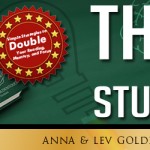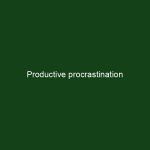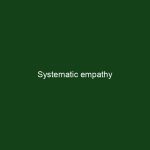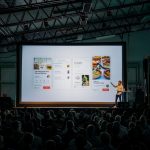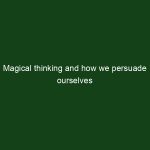Welcome to the keytostudy training resources. If you have any issues with any page on this site please email [email protected] only. Almost all of our students on day one want to see the training schedule that will take them to their goal. With the release of the new courses, we decided to migrate to syllabus …
Making hard decisions easier
Quite often we need to make hard decision. Many of these decisions have to do with priorities. We do not want to give up on any of our inspirations, yet if we pursue all of them we will die of fatigue. Occasionally there is no good solution, and occasionally an unexpected solution will work. For …
Productive procrastination
Sometimes we procrastinate. This can be a bad thing and a good thing. In this article, I argue in favor of smart procrastination. For more reading check out here, here, here, and here. Having a shady plan Sometimes our plans do not go well with who we are and what we desire. Not all plans …
Systematic empathy
Compassion is a great virtue which helps us connect with other people. Self-compassion helps us avoid injuries and saves us from misery. Lack of compassion in ourselves and in others poses several serious challenges. Fortunately, compassion can be systematically learned and developed. This post was inspired by reading this, this, this, and this articles. Disclaimer: …
Six Things You Need To Do After Attending Professional Development Event
Some of us have plenty of conferences and mingling event. It is not easy to leverage these events beyond some fun with colleagues. We could establish new connections with people in the industry, check out what other people and companies are working on, and maybe find some talents for our own company. The work does …
Continue reading “Six Things You Need To Do After Attending Professional Development Event”
So many things so little time
This particular post started from the title. “So many things so little time” is becoming a mantra of our generation. It is like a theme humming in my brain. I decided that if it haunts me, it must be also haunting you. In this post, I will not try to research or educate but simply …
Magical thinking and how we persuade ourselves
Magical thinking is one of the most potent cognitive biases. Of all people in the world, it is easiest for us to lie to ourselves. This self-deception may help us remain strong in times of great danger and uncertainty, and it may also lead to our downfall in times of prosperity and stability. In this …
Continue reading “Magical thinking and how we persuade ourselves”
What is your annual theme?
Today we start a new year, and it is great to start it with renewed purpose and motivation. To do that we use a tool called “annual theme”. You can have weekly or monthly themes, but an annual theme is more appropriate. Today’s selection of articles is very good. Do not miss a chance to …
Grateful and optimistic
I have written many posts about failure, and very little about success. Usually, we think that success is the end to our trouble, but unless we are careful the success can be very dangerous. For today’s most you can read more here, here, here, here, and here. Yin Yang The end of December is the …
Consciousness beats lifestyle
As the year is about to end it is a great time for a personal reckoning. Obviously, you do not need to wait for the end of the year. You will be surprised to know I wrote this article back in June, and simply scheduled it for today. This time I selected a wide range …

